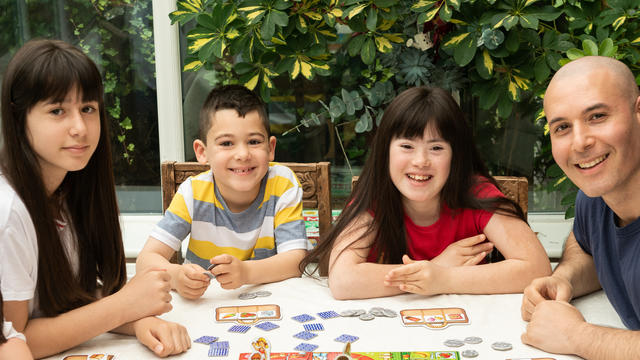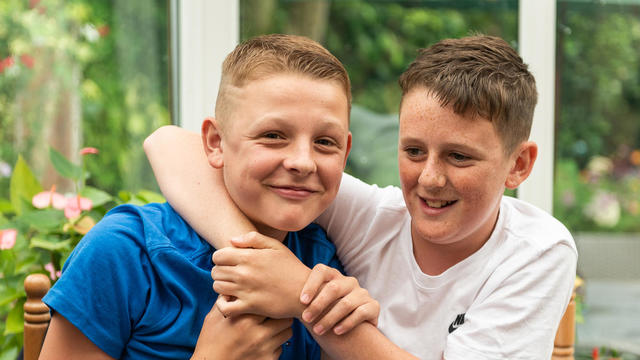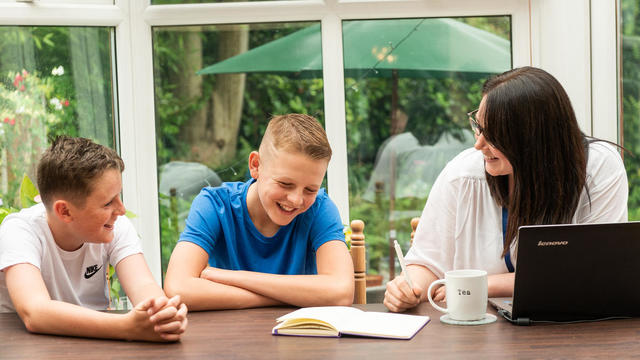What we can learn from the Future of Care Debate

Last week, panellists with a range of personal and professional experiences, aspirations and hopes for the care system came together to debate what the future of care should look like for children and young people. The event was held in Coram’s sunny London office space, with around thirty attendees in-person, and over 300 virtual attendees tuning in through Zoom.
Panellists:
- David Akinsanya, care experienced Journalist and Campaigner
- Keeley Stephenson, care experienced Civil Servant
- Andy Elvin, Chief Executive, TACT
- Carolyne Willow, Founder Director, Article39
- Alison Alexander, care experienced Former National Association of Young People in Care Representative and Former Director Social Services
- Kathy Evans, Chief Executive, Children England
‘How does the care system operate now, and what should it look like in the future?’
The original question was posed by Coram’s Chief Executive, Carol Homden, and is one that many care-experienced people, charities and campaigners have grappled with over the last few decades.
It is also a central question for the Care Review, which will be recommending actions to the government to ‘transform the system’ for children and young people. As we wait to find out what that vision of the future looks like, our campaigns manager, Lucy Croxton, shares an overview of the key themes and ideas discussed on the day and offers her perspective on the future of care.
N.B: This article has been written at a later date based upon notes from the event. While we have attempted to capture each ‘future vision of care’ accurately, it is not possible to include everything said. If you were a panellist and would like to further clarify your position, please email lucy.croxton@togethertrust.org.uk.
David Akinsanya’s vision of care
Many local authorities still fail to meet their obligations under the Children Act 1989 and cannot be trusted to deliver high-quality care to children. Unequal funding structures leave some of the richest areas in the country with large budgets to provide care, while in other areas budgets are constrained. The areas with a smaller budget are often those with greater levels of poverty, one of the main drivers for children entering the care system. This leads to a postcode lottery of support. Care experience should be a protected characteristic to help give everybody an equal place at the decision-making table. David pointed to the integrated care system model as a possible solution for the administration of care locally.
Keeley Stephenson’s vision of care
There is a complete lack of accountability in the care system. Failures and missteps are always the fault of someone else, and there are consistent problems with carers not being trauma-informed, personal advisers and social workers frequently moving on, and professionals not being able to juggle their caseloads. For Keeley, the future has to start with us all taking ownership of our responsibilities to children, and with care experienced people being at the heart of decision-making.
Andy Elvin’s vision of care
Local authorities are not doing a good job of providing care to children. Too often their processes are overly bureaucratic and take away from the dynamic of a family home, where parents would likely make decisions about the child with them around the kitchen table. Children in certain types of care arrangements continue to be disproportionately affected by a ‘silo’ system. For Andy, the solution lies in a national care system which is co-designed and co-produced with care experienced people. He is also in favour of a protected characteristic.
Carolyne Willow’s vision of care
Children’s rights should be at the heart of the care system. At the moment, rights and safeguards are created in a reactionary way when there is a new national scandal. The CareExp Conference recommendations showed that children want to feel loved and cared for, and every child should feel that they mean the world to those looking after them. Carolyne made several suggestions for what can be improved, including:
- a children’s champion in every local authority
- a shared parenting service which collaborates with parents and families
- a transition away from outcomes focused work
- an increased focus on the needs of children
- the introduction of new levels of child benefit support
- care for as long as a child needs it
- the incorporation of the UNCRC
- a critical look at the purchaser and provider model that is dominant in children’s social care
Alison Alexander’s vision of care
Children in care are still concerned with the same issues as they always have been, their family connections, mental health, placement moves and lack of opportunity. If anything demonstrates that the current service delivery model is broken, it is that the concerns of children have not really changed. Children that manage to succeed, do so because of their own resilience, not because of the system. The system is not joined up enough to adequately deal with the complex needs of children. For Alison, what is needed is a clear long-term plan, which is properly invested in.
Kathy Evan’s vision of care
What we see in children’s social care is ‘events’, but what underlies these events are trends, structure, and mental models. We are pulled into reacting to what has just happened, rather than questioning the underlying beliefs and values that sustain the system (in line with the Systems Thinking Iceberg). What is needed in children’s social care is a departure away from the ‘New Public Management’ model which has been dominant since the seventies. This model refers to the use of private sector management methods to oversee public services. Care is not a product, and therefore no care market should exist. An example of market failure is the price of care placements rocketing, but what underlies that is the competition for scarce places which allows providers to charge so much. For Kathy, what is needed is a transition away from this model, to a sustainable one, with large scale public investment in children’s social care. Kathy proposes that the Care Bank model she has developed will provide the systemic reform needed to fix commissioning and financing.
Our verdict
As different as the panellists’ views may seem, there were a set of concerns underpinning almost all of the pitches. There was a feeling of urgency, that we must get this right as soon as we possibly can for all children in care now and in the future. On this point, David’s closing comment resonated with me. He said, ‘we must remember the children in care right now.’ The need for decision-makers to choose an evidence-informed way forward, rather than choosing the evidence needed to justify a policy approach, particularly when there are children’s lives at stake, is vital.
Decades of slow change may lead us to conclude that the children’s social care sector is missing innovation, and in need of new leadership, outcomes and frameworks which will improve efficiency. Alison highlighted that issues faced by children in care have not significantly changed over the last three decades, when she herself was in care. Yet as Keeley pointed out, there continues to be no real accountability in the system. Social workers continue to leave the profession in droves, because of low pay, high caseloads and increasing expectations. This contributes to instability in the lives of children and young people. Trying to mould professionals to be more efficient, without making the level of public investment needed to allow them to do their jobs properly, is the equivalent of putting a plaster over an already infected cut.
I agree with Kathy that a continuation of the same approach to children’s social care management is unsustainable and is resulting in an endless churn of new faces and new agendas, promising outcomes on a shoestring budget. “Children’s care must not be political football” (Kathy Evans). Yes, the cost of properly funding a system which allows professionals to realistically fulfil their responsibilities under the Children Act 1989 and meet the needs of every child in care will be “expensive”. But parliament legislated knowing that it would be expensive and saw the value of doing it nonetheless. While it is relatively easy to calculate the cost of care, and government and local authorities will be concerned with doing so in order to balance their budgets, the cost of providing poor or no care at all is harder to quantify. Does that mean that it is a favourable option? Not at all.
When there is a national scandal, new rights and safeguards are created. This may inch us closer to a system where children’s voices are heard, yet Carolyne is right that decision-makers must go further and incorporate the UNCRC. Such a change would put children’s rights at the bedrock of the system, and result in rights which are not only symbolic but could be used to challenge decisions in courts across England. Finally, Andy’s point that the system must be co-designed and co-produced is also an important one and was echoed by many of the other speakers. Whether the future system should be a national, localised, or a hybrid one remains hotly contested, but it is abundantly clear that more needs to be done across the children’s social care sector to seek out, listen to and act upon the voices of care experienced people.
Learn more about our work to create a better future for all.





